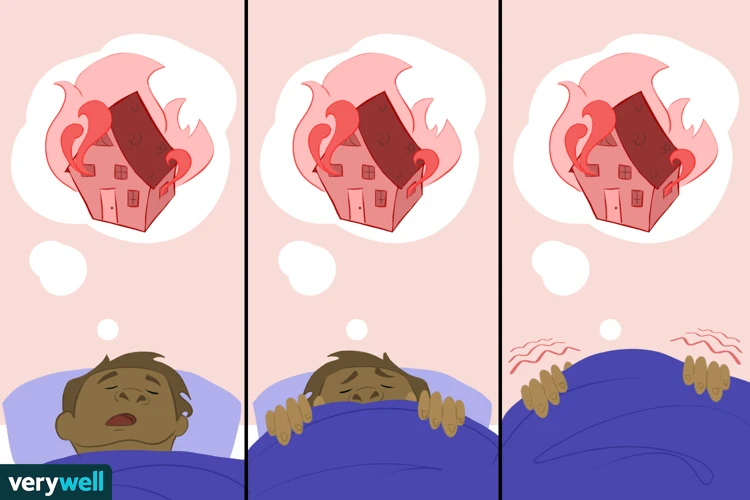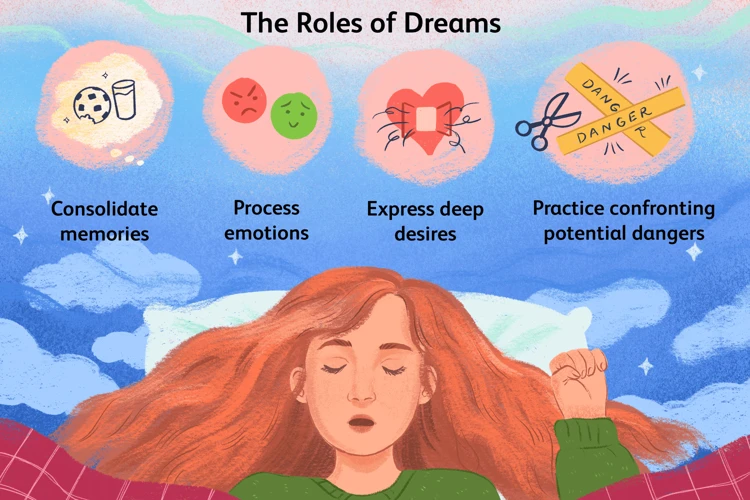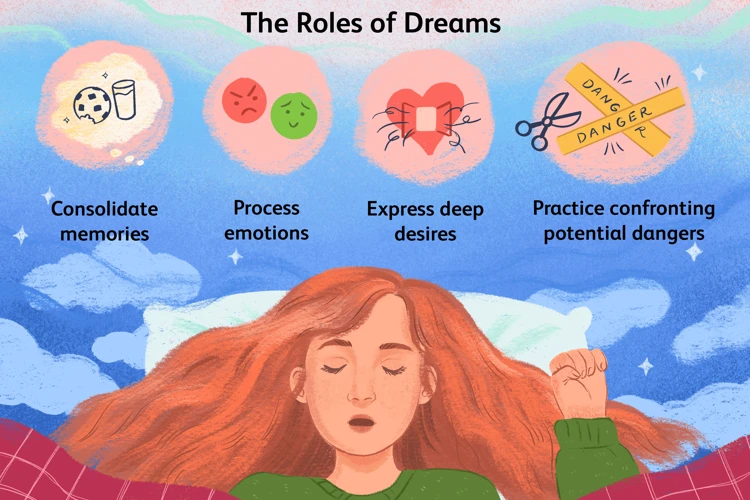Have you ever experienced a vivid and frightening dream that left you feeling startled and unsettled? Nightmares can be deeply unsettling, and there are various factors that can contribute to their occurrence. One possible cause that is often overlooked is the use of certain medications. It may come as a surprise, but some commonly prescribed drugs have been known to trigger nightmares in some individuals. In this article, we will delve into the connection between medications and nightmares, exploring which drugs are most commonly associated with this side effect, why it happens, and how to manage medication-induced nightmares. If you have ever wondered about the possible link between your medications and your unsettling dreams, read on to learn more.
Understanding Nightmares

Nightmares are intense and distressing dreams that can cause a range of emotional and physical responses. These vivid dreams often involve situations that evoke fear, anxiety, or helplessness, and can leave the dreamer feeling shaken upon waking. Nightmares typically occur during the rapid eye movement (REM) sleep stage, which is when most dreaming takes place. During REM sleep, the brain is highly active, and the body experiences temporary paralysis to prevent acting out dreams. While occasional nightmares are considered normal, recurrent nightmares can significantly disrupt sleep patterns and overall well-being.
Nightmares can vary in content and themes, but commonly they involve threatening situations such as being chased, falling from heights, or being attacked. These dreams may also incorporate elements of past traumas or distressing events. Nightmares can leave individuals feeling fearful, anxious, and even depressed, impacting their overall quality of life.
It’s important to note that nightmares can have various causes, including stress, anxiety, trauma, sleep disorders, and even certain medications. Understanding the underlying factors that contribute to nightmares is crucial in finding effective ways to manage and alleviate them.
To delve deeper into the causes and management of nightmares, check out our informative articles “Causes of Nightmares” and “Managing Nightmares: Tips for a Good Night’s Sleep”. Additionally, if you’re interested in exploring techniques to take control of your dreams and conquer nightmares, consider reading our article “Lucid Dreaming: A Powerful Tool to Conquer Nightmares”.
Medications That Can Cause Nightmares

Certain medications have the potential to trigger nightmares as a side effect. It’s essential to understand that not all individuals who take these medications will experience nightmares, but it is a known possibility. Sleeping aids such as hypnotics and sedatives, commonly prescribed for insomnia, may disrupt the normal sleep cycle and lead to vivid and unsettling dreams. Antidepressants, a widely prescribed class of drugs for mental health conditions, can also affect sleep patterns and increase the likelihood of experiencing nightmares. Similarly, anxiety medications such as benzodiazepines may have a similar impact. Blood pressure medications like beta-blockers and alpha-agonists, as well as certain cholesterol medications like statins, have been linked to nightmares in some individuals. Additionally, antipsychotics, antiepileptic drugs, and even stimulants used for attention deficit hyperactivity disorder (ADHD) treatment can potentially cause nightmares. It’s important to note that there are also other medications not mentioned that can have this effect, so it’s always advisable to consult with a healthcare provider if you are experiencing troubling dreams after starting a new medication.
Sleeping Aids
Sleeping aids, commonly known as sleep medications or hypnotics, are designed to help individuals struggling with insomnia or other sleep disorders get a restful night’s sleep. However, it’s important to be aware that some sleeping aids have been associated with the potential side effect of nightmares. The specific medications within this category that have been linked to nightmares include:
1. Benzodiazepines: These medications, such as diazepam (Valium) or lorazepam (Ativan), are often prescribed for short-term use to induce sleep. While they can be effective in promoting sleep, some individuals have reported experiencing unsettling dreams or nightmares as a result.
2. Zolpidem (Ambien): Zolpidem is a commonly prescribed sleep aid that helps individuals fall asleep faster. However, it has been associated with vivid and sometimes disturbing dreams, including nightmares.
3. Eszopiclone (Lunesta): Eszopiclone is another sleep medication that can be effective in treating insomnia. However, it has been reported to cause abnormal dream patterns, including nightmares, in some individuals.
It’s important to note that not everyone who takes sleeping aids will experience nightmares as a side effect. Each person reacts differently to medications, and some individuals may be more susceptible to experiencing unsettling dreams. If you are prescribed any sleeping aids and begin to experience distressing nightmares, it is crucial to communicate these symptoms with your healthcare provider. They can help determine if an alternative medication or dosage adjustment is necessary to alleviate this side effect. Remember, proper communication and collaboration with your healthcare provider is essential when managing any medication-induced side effects.
Antidepressants
Antidepressants are a class of medications commonly prescribed to manage symptoms of depression and other mood disorders. While these medications are generally effective in alleviating depressive symptoms, they can sometimes have side effects, and one of these side effects is an increase in vivid and distressing dreams, including nightmares.
Several types of antidepressants have been associated with the potential to cause nightmares. Selective serotonin reuptake inhibitors (SSRIs) such as fluoxetine (Prozac), sertraline (Zoloft), and escitalopram (Lexapro) are among the most commonly prescribed antidepressants and have been reported to cause nightmares in some individuals. Tricyclic antidepressants (TCAs) like amitriptyline (Elavil) and nortriptyline (Pamelor) may also have a similar effect on dream content, leading to the occurrence of nightmares.
The exact mechanism through which antidepressants cause nightmares is not fully understood. It is believed that alterations in neurotransmitters, specifically serotonin, which is involved in regulating sleep and dream states, may play a role. Antidepressants work by increasing the availability of serotonin in the brain, and this alteration in serotonin levels can impact dream patterns, potentially leading to more intense and vivid dreams, including nightmares.
It’s important to note that not everyone who takes antidepressants will experience nightmares as a side effect. The occurrence of nightmares can vary from person to person, and other factors such as dosage, individual susceptibility, and concurrent use of other medications may also influence their likelihood. If you’re taking antidepressants and are experiencing distressing dreams or nightmares, it’s essential to discuss your symptoms with your healthcare provider. They may be able to adjust your medication dosage or explore alternative treatment options to help minimize the occurrence of nightmares while still effectively managing your depression.
Anxiety Medications
Anxiety medications, such as benzodiazepines and selective serotonin reuptake inhibitors (SSRIs), are commonly prescribed to help manage symptoms of anxiety and panic disorders. While these medications can be highly effective in reducing anxiety, they can also have side effects, including the potential to induce nightmares. The exact reason behind this side effect is not fully understood, but it is believed that the impact of these medications on sleep patterns and brain chemistry may play a role.
Benzodiazepines, such as alprazolam (Xanax) or diazepam (Valium), work by enhancing the activity of a neurotransmitter called gamma-aminobutyric acid (GABA), which helps to calm the brain and reduce anxiety. However, they can also disrupt the normal sleep cycle, leading to vivid and intense dreams, including nightmares. These medications can alter the REM sleep phase, potentially increasing dreaming activity.
SSRIs, such as sertraline (Zoloft) or escitalopram (Lexapro), are commonly prescribed for anxiety disorders and depression. While they primarily target the reuptake of serotonin in the brain, which can improve mood and reduce anxiety, they can also affect sleep patterns. Some individuals may experience changes in REM sleep while taking SSRIs, which can contribute to the occurrence of nightmares.
It’s important to note that not everyone who takes anxiety medications will experience nightmares. The likelihood of experiencing nightmares as a side effect can vary from person to person, depending on factors such as individual sensitivity, medication dosage, and duration of use. If you are taking anxiety medications and experiencing troubling nightmares, it is important to speak with your healthcare provider. They may be able to adjust your medication or provide recommendations to help manage and alleviate the nightmares.
In the next section, we will explore why medications can cause nightmares and provide tips for managing medication-induced nightmares.
Blood Pressure Medications
Blood pressure medications are commonly prescribed to manage hypertension and help lower blood pressure levels. While these medications can offer significant benefits for cardiovascular health, certain types of blood pressure medications have been associated with the potential side effect of causing nightmares in some individuals. It’s important to note that not everyone who takes these medications will experience nightmares, and the occurrence of this side effect can vary.
Here are some types of blood pressure medications that have been reported to potentially cause nightmares:
- Beta-blockers: These medications, such as metoprolol and propranolol, work by blocking the effects of adrenaline, thereby reducing heart rate and blood pressure. Although nightmares are not a commonly reported side effect of beta-blockers, some individuals have reported experiencing vivid dreams or nightmares while taking these medications.
- Alpha-blockers: Alpha-blockers like doxazosin and prazosin are used to relax blood vessels, allowing for easier blood flow. While nightmares are not a known common side effect of alpha-blockers, a small percentage of individuals may experience vivid dreams or nightmares while on these medications.
- Angiotensin-converting enzyme (ACE) inhibitors: Medications like lisinopril and enalapril are used to relax blood vessels, reducing blood pressure. Although ACE inhibitors are generally well-tolerated, some individuals have reported experiencing nightmares as a rare side effect of these medications.
- Calcium channel blockers: Medications such as amlodipine and diltiazem are used to relax blood vessels and lower blood pressure. Nightmares are not commonly associated with calcium channel blockers, but rare cases of this side effect have been reported.
- Diuretics: Diuretics, also known as water pills, are medications that help the body eliminate excess fluid, reducing blood volume and lowering blood pressure. While diuretics themselves are not usually linked to nightmares, they can cause disruptions in sleep patterns or electrolyte imbalances that may contribute to disturbed dreams or nightmares in some individuals.
If you are taking blood pressure medications and experiencing bothersome nightmares as a side effect, it is important to discuss these symptoms with your healthcare provider. They may be able to offer alternative medications or adjust the dosage to help alleviate this side effect. It is crucial not to stop or adjust any medication without consulting your healthcare provider first, as doing so can have serious implications for your overall health.
Cholesterol Medications
Cholesterol medications, also known as statins, are commonly prescribed to help manage high cholesterol levels and reduce the risk of cardiovascular diseases. While these medications provide significant health benefits, some individuals may experience nightmares as a potential side effect. It is believed that statins can interfere with the production of certain brain chemicals that regulate sleep and dreaming, which may contribute to the occurrence of nightmares.
Research suggests that the incidence of nightmares due to cholesterol medications is relatively low. However, some individuals have reported experiencing vivid and unsettling dreams while taking statins. If you are experiencing nightmares or other sleep disturbances while on cholesterol medications, it is essential to discuss these side effects with your healthcare provider. They may be able to adjust the dosage or recommend alternative medications to help alleviate this side effect.
It is worth noting that not everyone will experience nightmares while taking cholesterol medications. Individuals react differently to medications, so it is important to remain aware of any changes in your sleep patterns or dream experiences while on these medications. Keeping an open line of communication with your healthcare provider is crucial for addressing any concerns and finding the most suitable treatment plan for your condition.
Remember, do not make any changes to your medication regimen without consulting your healthcare provider. They are best equipped to assess your individual situation and provide guidance based on your specific needs and medical history.
Antipsychotics
Antipsychotic medications are commonly prescribed to treat psychiatric conditions such as schizophrenia and bipolar disorder. While these medications are effective in managing symptoms, they can also have side effects, including the potential to cause nightmares. The link between antipsychotics and nightmares isn’t fully understood, but it is believed to be related to the drugs’ impact on neurotransmitters in the brain.
Antipsychotics work by altering levels of dopamine and serotonin, two important neurotransmitters involved in mood regulation and sleep-wake cycles. Disruptions in these neurotransmitters can potentially disrupt normal sleep patterns and lead to the occurrence of nightmares. Additionally, antipsychotics can influence the nervous system and sleep architecture, further contributing to the development of nightmares.
It’s important to note that not all individuals who take antipsychotic medications will experience nightmares. The occurrence and severity of nightmares can vary from person to person, depending on factors such as dosage, individual sensitivity to the medication, and underlying mental health conditions. It’s essential to discuss any concerning side effects, including nightmares, with a healthcare provider, who may adjust the dosage or explore alternative treatment options.
If you’re taking antipsychotic medication and experiencing distressing nightmares, it’s vital to communicate this to your healthcare provider. They may be able to provide guidance on managing the nightmares or adjust your treatment plan to minimize their occurrence. Remember that medication adjustments should always be done under the supervision of a healthcare professional.
In the next section, we will explore why certain medications can cause nightmares, shedding light on the mechanisms behind this intriguing phenomenon.
Antiepileptic Drugs
Antiepileptic drugs, also known as anticonvulsants, are medications commonly prescribed to individuals with epilepsy or seizure disorders. While these medications are effective in controlling seizures, they can sometimes have side effects, and one potential side effect is the occurrence of nightmares.
The exact mechanism by which antiepileptic drugs can cause nightmares is not fully understood. However, it is believed that these medications may disrupt the normal sleep cycle and REM sleep, which is the stage of sleep where dreams, including nightmares, occur. Certain antiepileptic drugs, such as phenytoin and topiramate, have been specifically associated with an increased risk of nightmares.
It is important to note that not everyone who takes antiepileptic drugs will experience nightmares as a side effect. Each individual’s response to medication can vary. If you are taking antiepileptic drugs and are experiencing distressing or recurrent nightmares, it is essential to discuss this with your healthcare provider. They may be able to adjust your dosage or recommend alternative medications that have a lower risk of causing nightmares.
Remember, never make any changes to your medication regimen without consulting your healthcare provider first. They are best equipped to evaluate your specific situation and provide guidance on managing any side effects, including nightmares, that may arise from antiepileptic drugs.
Stimulants
Stimulants are a class of medications that are commonly prescribed to treat conditions such as attention deficit hyperactivity disorder (ADHD) and narcolepsy. While these drugs can be highly effective in improving focus and alertness, they can also have an impact on sleep patterns and may contribute to the occurrence of nightmares.
1. Amphetamines: Drugs like Adderall and Ritalin, which contain amphetamines, are known to stimulate the central nervous system. As a result, they can disrupt the normal sleep cycle, leading to difficulties in falling asleep and staying asleep. This disruption can increase the likelihood of experiencing nightmares during the REM sleep stage.
2. Methylphenidate: Another commonly prescribed stimulant medication, methylphenidate (e.g., Concerta, Daytrana), can also affect sleep patterns. Individuals taking methylphenidate may experience changes in their sleep architecture, including a reduced amount of REM sleep. This alteration in sleep stages can contribute to the development of vivid and unsettling dreams, potentially leading to nightmares.
3. Modafinil: While modafinil is not classified as a traditional stimulant, it is sometimes used off-label to promote wakefulness. Modafinil has been associated with sleep disturbances, including the disruption of REM sleep, which can increase the likelihood of experiencing nightmares.
It’s important to note that the occurrence of nightmares as a result of stimulant medications can vary from individual to individual. Some people may not experience any adverse effects on their dreams, while others may notice a significant increase in nightmare frequency and intensity. If you are taking stimulant medications and are concerned about the impact on your sleep and dreams, it is recommended to consult with your healthcare provider. They can evaluate your specific situation and provide guidance on managing any medication-induced nightmares.
Understanding the potential side effects of stimulant medications, including their impact on sleep and dream patterns, can help individuals make informed decisions about their treatment options. It’s important to weigh the benefits of these medications in improving focus and attention against the potential risks associated with sleep disturbances and nightmares.
Other Medications
Some medications that are not commonly associated with nightmares can still have this side effect in certain individuals. While the occurrence of nightmares with these medications is relatively rare, it is important to be aware of the potential risk. Here is a list of other medications that have been reported to cause nightmares:
- Antibiotics: Antibiotics such as levofloxacin and erythromycin have been known to cause nightmares in some individuals. These medications are commonly prescribed to treat bacterial infections.
- Pain Medications: Opioid-based pain medications like codeine and morphine have been associated with causing nightmares, although the exact mechanism is not yet fully understood.
- Immunosuppressants: Medications used to suppress the immune system, such as cyclosporine, can occasionally lead to vivid and disturbing dreams.
- Antihistamines: Certain antihistamines, such as diphenhydramine, which are commonly used to manage allergies, can also induce nightmares in some individuals, particularly when taken in higher doses.
- Cardiovascular Medications: Some medications used to manage cardiovascular conditions, like beta blockers and calcium channel blockers, have been reported to cause nightmares as a possible side effect.
It is essential to emphasize that not everyone who takes these medications will experience nightmares, and the occurrence of this side effect can vary from person to person. If you suspect that your medications may be contributing to your nightmares, it is crucial to discuss your symptoms with a healthcare provider. They can evaluate your specific situation and provide appropriate guidance on managing any medication-induced nightmares you may be experiencing.
Why Do Medications Cause Nightmares?

When it comes to understanding why medications can cause nightmares, there isn’t a single definitive answer. However, there are several theories and factors that may contribute to this phenomenon. Here are some possible explanations:
1. Disruption of Neurotransmitters: Medications, especially those that affect the brain and central nervous system, can alter the balance of neurotransmitters. These chemical messengers play a vital role in regulating sleep, mood, and emotions. When this balance is disrupted, it can lead to vivid and unsettling dreams.
2. Activation of the Amygdala: The amygdala is the part of the brain responsible for processing emotions, including fear and anxiety. Certain medications may stimulate or disrupt the activity of the amygdala, leading to the manifestation of intense and distressing dreams.
3. Sleep Disruption: Some medications can interfere with the normal sleep cycle, particularly the REM sleep stage where most dreaming occurs. When REM sleep is disrupted or shortened, it can result in an accumulation of dream content, potentially leading to more vivid and disturbing nightmares.
4. Individual Sensitivity: Different people may have varying reactions to medications, and some individuals may be more susceptible to experiencing nightmares as a side effect. Certain genetic, physiological, or psychological factors may contribute to this heightened sensitivity.
5. Withdrawal Effects: Abrupt discontinuation or changes in medication dosages can sometimes trigger withdrawal effects, including vivid dreams and nightmares. It’s important to follow prescribed dosages and consult healthcare providers before making any changes to medication regimens.
It’s crucial to remember that not everyone will experience medication-induced nightmares, and the severity and frequency of these dreams can vary. If nightmares become bothersome or persistent, it is essential to consult your healthcare provider, who can provide guidance and adjust your medication regimen if necessary.
Tips for Managing Medication-Induced Nightmares

If you’re experiencing nightmares as a side effect of medication, there are several strategies you can implement to help manage and alleviate this unsettling symptom. Here are some tips for managing medication-induced nightmares:
1. Speak with your healthcare provider: It’s essential to communicate any concerns with your prescribing healthcare provider. They can evaluate your medication regimen and determine if there are alternative options available that may have a lower likelihood of causing nightmares.
2. Consider adjusting the timing of medication: Sometimes, changing the time you take certain medications can have a positive impact on nightmares. For instance, if you’re taking a medication that causes vivid dreams at night, your healthcare provider may advise taking it in the morning instead.
3. Practice good sleep hygiene: Maintaining a consistent sleep routine and creating a relaxing environment can help promote better sleep and possibly reduce the occurrence of nightmares. Ensure your bedroom is cool, quiet, and comfortable, and establish a pre-sleep routine that includes activities like reading or listening to calming music.
4. Engage in stress-reducing activities: Stress and anxiety can exacerbate nightmares. Engaging in stress-reducing activities such as practicing mindfulness, deep breathing exercises, or engaging in hobbies can help create a sense of calm and relaxation before bed.
5. Consider therapy or counseling: If nightmares persist and significantly impact your daily life, therapy or counseling may be beneficial. Cognitive-behavioral therapy for nightmares (CBT-N) has shown effectiveness in reducing nightmare frequency and intensity.
6. Explore relaxation techniques: Incorporating relaxation techniques, such as progressive muscle relaxation or guided imagery, before bed can help induce a state of relaxation and potentially reduce the likelihood of nightmares.
7. Keep a dream journal: Keeping a dream journal can help you gain insight into recurring themes or triggers in your nightmares. By understanding these patterns, you may be able to address underlying issues or discuss them with your healthcare provider.
Remember, it’s crucial to consult with your healthcare provider when managing medication-induced nightmares. They can provide personalized guidance and make adjustments to your treatment plan if necessary. With the proper support and strategies in place, you can mitigate the impact of nightmares and improve your overall sleep quality.
Consulting Your Healthcare Provider
When experiencing nightmares that may be linked to medication use, it is important to consult your healthcare provider for guidance. Your doctor will be able to assess your specific situation and determine the best course of action. Here are a few reasons why scheduling a consultation is beneficial:
1. Evaluation of Medication: Your healthcare provider will review the medications you are currently taking and determine if any of them have potential side effects that could contribute to nightmares. They may consider adjusting the dosage, changing the medication, or exploring alternative treatment options.
2. Medical History Assessment: Your doctor will assess your medical history to identify any underlying conditions or factors that may contribute to nightmares. They will take into account your overall health, previous experiences with medications, and any known risk factors.
3. Individualized Recommendations: Healthcare providers can provide personalized recommendations based on your unique circumstances. They may suggest lifestyle modifications, relaxation techniques, or additional therapies to help manage and reduce nightmares.
4. Safety Review: Consulting your healthcare provider ensures that any changes made to your medication regimen are done safely. They will monitor your progress and make adjustments as needed to minimize the occurrence of nightmares while addressing your other medical needs.
Remember, it is essential to never stop or adjust your medication without professional guidance. Abruptly discontinuing or altering your medication can have significant consequences for your health. By consulting your healthcare provider, you can work together to find the most appropriate solutions for managing medication-induced nightmares and optimizing your overall well-being.
Conclusion
In conclusion, it is evident that medications can indeed cause nightmares in some individuals. Various types of drugs, including sleeping aids, antidepressants, anxiety medications, and antipsychotics, have been associated with this side effect. While the exact reasons why certain medications induce nightmares are not fully understood, it is believed that they can disrupt the normal sleep cycle and affect the brain’s neurochemical balance.
If you are experiencing medication-induced nightmares, it is essential to discuss your symptoms with your healthcare provider. They can evaluate your medications, consider alternative options, or adjust dosages to minimize the occurrence of nightmares. Additionally, practicing good sleep hygiene and incorporating stress-reduction techniques into your routine can also help alleviate nightmares.
Remember that while nightmares can be distressing, they are usually temporary and can be managed with the right approach. By understanding the medications that can contribute to nightmares and taking proactive steps to address the issue, you can improve your sleep quality and overall well-being. Always consult with your healthcare provider for personalized guidance and support. Sweet dreams await on your journey to better sleep!
Frequently Asked Questions
1. Can nightmares be a symptom of an underlying medical condition?
Yes, in some cases, nightmares can be a symptom of underlying medical conditions such as sleep disorders, post-traumatic stress disorder (PTSD), anxiety disorders, and depression. It’s important to consult with a healthcare provider if you are experiencing frequent or distressing nightmares.
2. Are nightmares more common in children than adults?
Yes, nightmares are more common in children. This is believed to be due to their active imagination, cognitive development, and the processing of emotions during sleep. However, nightmares can occur at any age.
3. Can certain foods or drinks trigger nightmares?
While there isn’t strong scientific evidence linking specific foods or drinks to nightmares, some individuals report that consuming heavy or spicy meals, caffeine, or alcohol close to bedtime can increase the likelihood of experiencing vivid dreams or nightmares.
4. Can medications used to treat sleep disorders cause nightmares?
Some medications used to treat sleep disorders, such as certain sedatives or medications for insomnia, have been associated with an increased risk of nightmares. It’s important to discuss any concerns or side effects with your healthcare provider.
5. Can meditation or relaxation techniques help reduce nightmares?
While there is limited research specifically focused on the use of meditation or relaxation techniques for nightmares, these practices can help reduce overall stress and promote better sleep, which may indirectly help alleviate nightmares.
6. Can keeping a dream journal help in understanding nightmares?
Keeping a dream journal can be a useful tool for understanding the patterns, themes, and emotions associated with your nightmares. It can provide insight into potential triggers and help you discuss your experiences with a healthcare provider or therapist.
7. Can changing sleep habits help reduce the frequency of nightmares?
Establishing a regular sleep routine and practicing good sleep hygiene can positively impact your overall sleep quality, potentially reducing the frequency of nightmares. This includes going to bed and waking up at consistent times, creating a calming sleep environment, and avoiding stimulating activities before bedtime.
8. Can exposure therapy be effective in treating nightmares?
Exposure therapy, which involves gradually and safely exposing oneself to disturbing dream content, can be an effective treatment approach for certain individuals experiencing chronic nightmares related to trauma or anxiety. It’s best to consult with a mental health professional to determine if this therapy is appropriate for you.
9. Can certain herbal or alternative remedies help with nightmares?
While some herbal or alternative remedies claim to help with nightmares, the evidence supporting their effectiveness is limited. It’s important to consult with a healthcare provider before trying any new remedies or supplements.
10. Can cognitive-behavioral therapy (CBT) help in managing nightmares?
Yes, cognitive-behavioral therapy (CBT) has shown to be effective in managing nightmares. This therapy focuses on identifying and challenging negative thought patterns and behaviors associated with nightmares, providing strategies to cope with fear and anxiety, and promoting better sleep habits.








